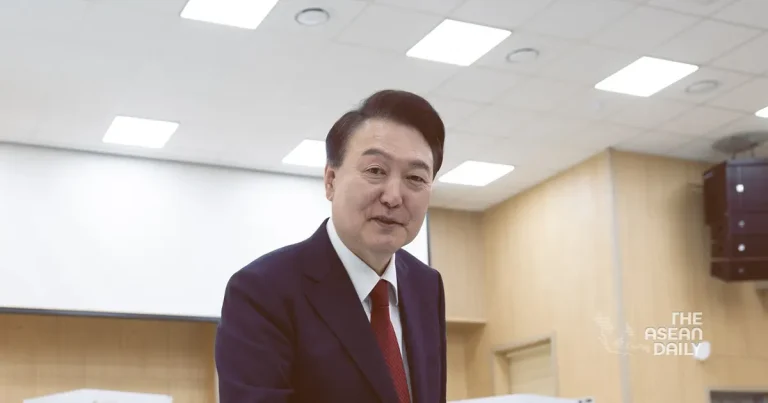17-12-2024 (SEOUL) The Constitutional Court commenced deliberations Monday on President Yoon Suk-yeol’s impeachment following his controversial martial law decree, with legal experts suggesting his political survival hangs by a thread.
The impeachment proceedings, triggered by Saturday’s National Assembly vote, have effectively suspended Yoon from his presidential duties whilst the court weighs the gravity of his 3 December martial law declaration, which critics argue represented a stark overreach of executive power.
At the heart of the controversy lies Yoon’s assertion that the decree was necessary to counter alleged opposition collusion with North Korea, a claim that has met widespread scepticism. His repeated refusal to appear before investigators has only intensified scrutiny of his actions.
The case has gained additional momentum following the detention of former Defence Minister Kim Yong-hyun and three senior military commanders, including the chiefs of the Defence Intelligence Unit, Special Warfare Command, and Defence Intelligence Command, all implicated in the controversial military deployment that prevented lawmakers from accessing the National Assembly.
Justice Kim Hyung-du, speaking at Monday’s opening session, pledged swift and impartial proceedings, though concerns linger over the court’s current composition. Operating with just six justices instead of the customary nine due to recent retirements, the tribunal faces questions about the broader legitimacy of potential rulings.
Legal scholars remain divided on the likely outcome. Professor Lim Ji-bong of Sogang University argues that the deployment of military forces against parliament constitutes a clear case of insurrection. “The constitution permits martial law only under extreme circumstances. South Korea faced neither war nor armed conflict that could justify such measures,” Lim told reporters.
University of Seoul’s Professor Kim Dai-whan concurred, emphasising that Yoon’s actions represented multiple constitutional breaches. “Presidential authority exists to protect the constitution, not to circumvent it,” he noted.
However, Professor Cha Jin-a from Korea University’s School of Law urged caution, citing inconsistencies in witness accounts and suggesting Yoon’s actions might reflect poor judgment rather than malicious intent. “The question remains whether a misreading of circumstances, however severe, warrants removal from office,” she observed.




